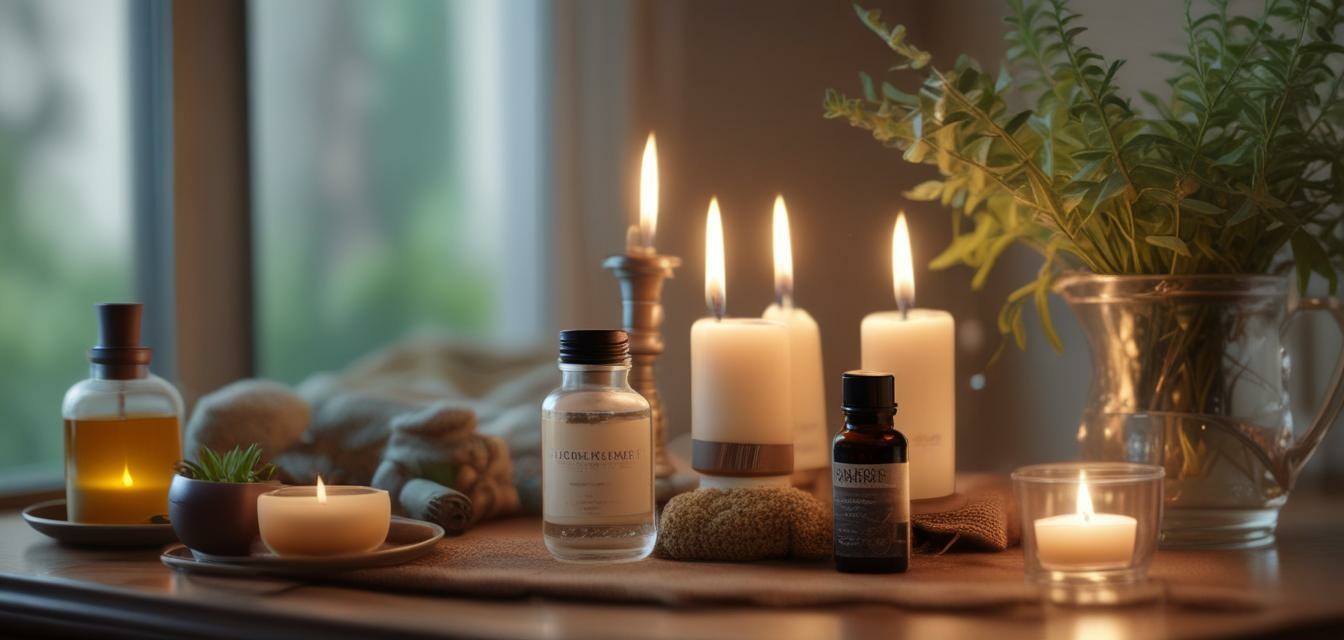
Importance of self-care practices in mental health
Key takeaways
- Self-care is essential for maintaining mental health.
- Incorporating wellness tools can enhance your self-care routine.
- Simple practices, like using aromatherapy and herbal remedies, can improve your daily mood.
- Regular self-care can foster resilience and personal growth.
In today's fast-paced world, prioritizing self-care practices is crucial for maintaining mental health. With increasing stress and overwhelming responsibilities, individuals often overlook essential self-care routines. This article explores the importance of these practices and provides actionable tips for incorporating wellness tools like aromatherapy and herbal remedies into your daily life.
The significance of self-care in mental health
Self-care refers to the actions we take to maintain our well-being and improve our mental health. It encompasses a wide variety of practices aimed at nurturing the body and mind, helping to achieve a balanced life. Here are some key reasons why self-care is vital:
- **Stress reduction:** Taking time for yourself lowers stress levels and improves emotional resilience.
- **Enhanced mood:** Engaging in self-care activities can uplift your spirits and create a positive mindset.
- **Increased productivity:** Regular self-care promotes clarity and focus, which can enhance your performance.
- **Better relationships:** Caring for yourself can lead to healthier connections with others.
Common self-care practices
There are multiple self-care practices that can be integrated into your routine. Here are some popular options:
| Self-Care Practice | Description |
|---|---|
| Aromatherapy | The use of essential oils for therapeutic purposes to enhance well-being. |
| Herbal remedies | Natural substances that promote relaxation and support emotional health. |
| Mindfulness meditation | A practice that encourages focusing on the present moment to reduce anxiety. |
| Physical exercise | Engaging in physical activity to boost endorphins and improve overall mood. |
| Quality sleep | Ensuring adequate rest is essential for mental rejuvenation. |
Incorporating self-care tools into your routine
To enhance your self-care practices, consider incorporating wellness tools into your daily life. Below are actionable tips on how to do this effectively:
Beginner's Tips for Self-Care
- **Start with aromatherapy:** Use a diffuser filled with essential oils like lavender or eucalyptus to create a calming atmosphere.
- **Explore herbal remedies:** Consider calming teas such as chamomile or valerian root to unwind during your evenings.
- **Schedule downtime:** Set aside specific time each week for self-care activities, treating them as appointments.
- **Create a comfy space:** Designate a part of your home as a relaxation sanctuary, filled with cushions, aromatic candles, and soft lighting.
- **Keep a journal:** Reflect on your feelings and track your progress on your self-care journey.
Monitoring your progress
Self-care practices can take time to become habits. Here’s how you can monitor your progress:
- **Set goals:** Identify specific self-care activities and set weekly goals to achieve them.
- **Use a self-care tracker:** Create a simple chart to log your daily self-care activities.
- **Reflect regularly:** Take time to note how you feel after implementing your self-care practices.
Conclusion
Prioritizing self-care is essential for maintaining mental health. By incorporating wellness tools such as aromatherapy and herbal remedies, you can enhance your self-care routine and improve your overall well-being. Remember, self-care isn’t selfish; it’s a necessary practice to lead a balanced and fulfilling life.
Pros
- Improved mental clarity and focus.
- Reduction in stress and anxiety levels.
- Increased resilience against everyday challenges.
- Enhanced overall well-being.
Cons
- Implementing new habits can take time.
- Some practices may require financial investment.
- Consistency can be challenging amidst a busy lifestyle.
Further Resources
For those interested in learning more about self-care and wellness, check out our other resources:
- Wellness Tips - Explore more practical advice to enhance your well-being.
- Aromatherapy Products - Discover essential oils and diffusers to elevate your self-care practice.
- Herbal Remedies - Find natural options that can be beneficial for your self-care routine.
- Massage Oils and Tools - Learn about tools to enhance relaxation and relieve stress.
- Wellness Supplements - Explore supplements that support overall health.
